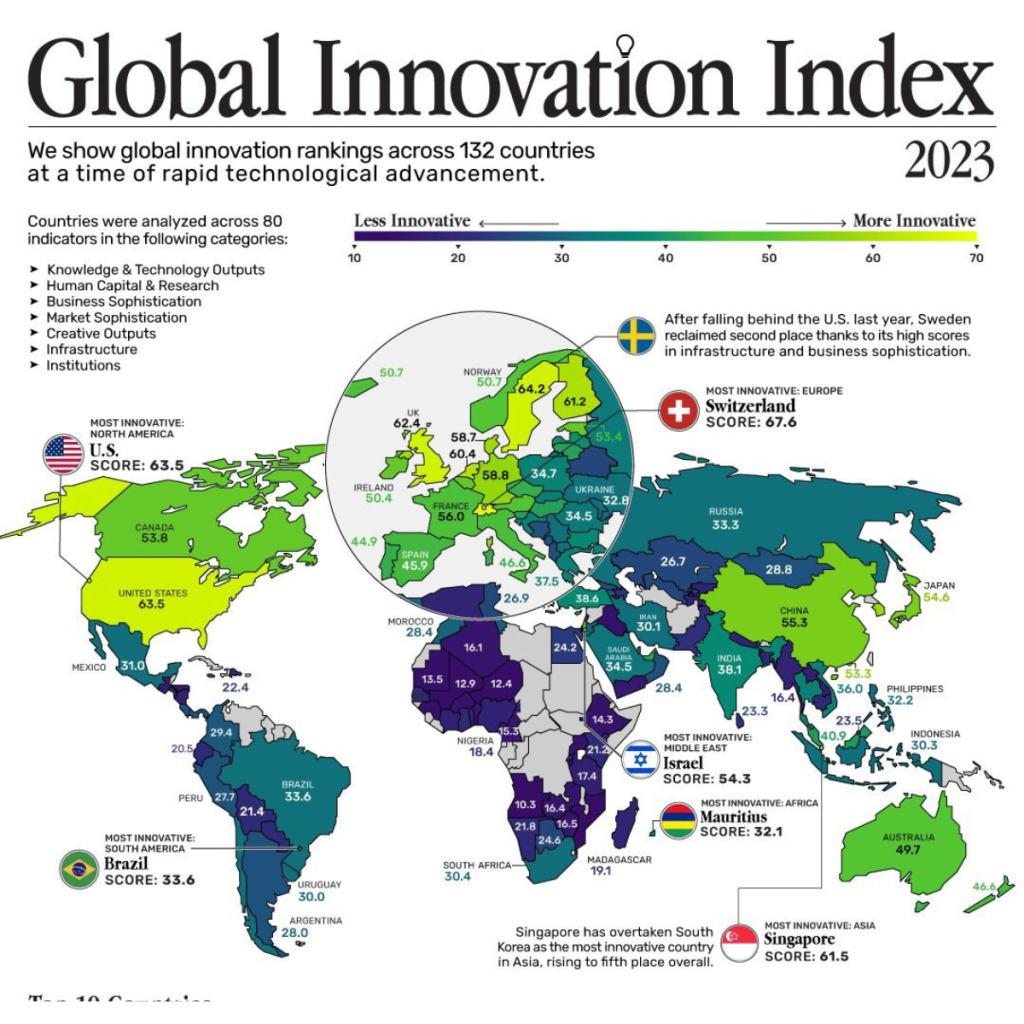The Global Innovation Index 2023 has once again crowned Switzerland as the most innovative country in the world, for the 13th consecutive year! This small European nation is a true champion in innovation, excelling in both knowledge and technology as well as creativity.
The Global Innovation Index 2023 (GII) is a comprehensive and structured analysis of global innovation, conducted in an economic and geopolitical period marked by uncertainties. It explores the latest innovation trends and, despite a climate of uncertainty and a decrease in venture capital investments, highlights numerous emerging opportunities in digital innovation and Deep Science.
The GII 2023 evaluates the innovative performance of 132 economies, providing a detailed ranking that highlights the strengths and weaknesses of each. This index also reveals the top 100 scientific and technological clusters in the world. As an important tool for formulating innovation policies, the GII is widely used by governments to compare innovative performances, refine innovation metrics, and develop evidence-based policies.
In relation to the United Nations’ Sustainable Development Goals (SDGs), the GII has been recognized by the UN General Assembly as a fundamental benchmark for measuring innovation, especially in a post-pandemic context.
This year, the GII covers 132 economies, representing about 92.5% of the world’s population and 97.6% of the global GDP. This year’s model includes 80 indicators, divided into three categories: quantitative data (64 indicators), composite indicators (11 indicators), and qualitative/survey data (5 indicators). This multidimensional approach allows for an accurate and diversified evaluation of innovation at a global level.
The Global Innovation Index 2023 has once again crowned Switzerland as the world’s most innovative country for the 13th consecutive year! This small European country is a true champion in innovation, excelling in both the field of knowledge and technology and in creativity. But it’s not the only country in the spotlight: Sweden has overtaken the United States, securing second place thanks to its excellence in business sophistication, infrastructure, and research. The United States, however, continues to lead, dominating 13 of the 80 innovation indicators of the GII, including investments in Research and Development, university quality, and the value of startups.
Singapore has made a leap forward, placing among the top five, while Finland is closing in on the top 5, gaining three positions. Other Nordic and Baltic countries have stood out for their improvements. Surprisingly, China, despite a slight decline, remains the only middle-income economy in the top 30. Other emerging economies are also making significant progress, such as Brazil, which is now the leader in innovation in Latin America and the Caribbean.
In Asia, Thailand and Vietnam maintain a firm position in the top 50, while Indonesia and the Philippines are gaining ground. In Sub-Saharan Africa, South Africa enters the top 60, and Rwanda leads the low-income economies. Overall, this year we have seen many interesting changes and significant progress in innovation worldwide, with several emerging economies making their way up the rankings.









